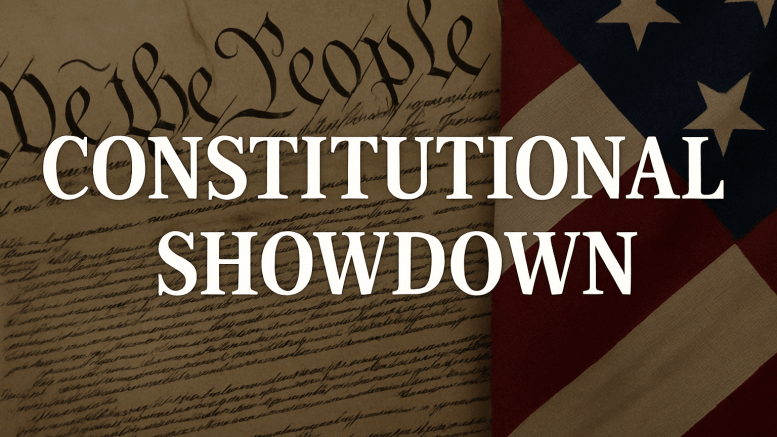“The universal injunction was conspicuously nonexistent for most of our nation’s history.”
— Justice Amy Coney Barrett, Trump v. CASA
Judicial Supremacy Just Hit a Wall
In a landmark 6–3 decision, the Supreme Court ruled that federal courts lack authority to issue universal injunctions—a seismic win for constitutional order. This historic case, Trump v. CASA, not only reaffirms executive power but curtails a legal weapon long used to block conservative policies from coast to coast.
This article draws extensively from reporting by Tyler O’Neil, senior editor at The Daily Signal. Read the original coverage here.
While the case involved a challenge to President Trump’s executive order on birthright citizenship, the Court’s ruling focused on the broader issue: can a single district judge stop a policy for the entire country? The Court’s answer: no.
A Power Courts Were Never Meant to Wield
The Court decisively held that injunctions must be limited to actual parties in a lawsuit, not the entire nation. Justice Barrett, writing for the majority, noted this nationwide approach has “no basis in the historical understanding of equitable power.”
Trump’s Solicitor General John Sauer testified that 35 of 40 universal injunctions came from just five jurisdictions—evidence of strategic forum shopping designed to grind the executive branch to a halt.
We would appreciate your donation.Universal injunctions:
– Froze Trump’s public charge and border policies
– Stopped ICE from enforcing immigration orders
– Delayed implementation of legally valid executive actionsJustice Barrett rightly declared: “District courts asserting the power to prohibit enforcement of a law or policy against anyone” is a recent—and troubling—development.
God First: The Limits of Human Power
Scripture reminds us that lawlessness is not freedom, and unchecked human authority must be restrained:
“The Lord is our judge, the Lord is our lawgiver, the Lord is our king; it is He who will save us.” — Isaiah 33:22
This decision realigns the judiciary with its biblical and constitutional bounds. Justice Barrett even rebuked Justice Ketanji Brown Jackson for dismissing limits on judicial authority as “mind-numbingly technical,” warning that her vision “would make even the most ardent defender of judicial supremacy blush.”
Implications for Immigration and Beyond
This ruling won’t decide the birthright citizenship debate—but it does shake the foundation of activist litigation strategies.
Expect these changes:
- Lower courts can’t block deportations nationwide
- ICE enforcement actions may resume more quickly
- Forum shopping will face tougher scrutiny
- Lawsuits must stick to actual plaintiffs—no more national vetoes
In short: a major brake has been placed on the fourth branch of government—the activist judiciary.
Constitutional Showdown Scorecard
- Executive Power Reinforced
- Judicial Restraint Reaffirmed
- Forum Shopping Undermined
- Rule of Law Strengthened
The tide is turning. One judge should not be able to override the will of the American people—especially when those powers were never granted by the Constitution in the first place.
Related Reading:
– Tyler O’Neil, The Daily Signal – Supreme Court Strikes Down Universal Injunctions:
– VCA Constitution Series Archive
– Heritage Foundation on Nationwide Injunctions


Courts have been operating under unconstitutional powers using the judicial review fiction since Marbury v Madison in 1801. Chief Justice John Marshall who was an influential supporter of the Constitution yet was swayed by Alexander Hamilton who wrote several Federalist Papers after New Hampshire became the 9th and deciding state to ratify the Constitution with the express purpose to expand the power of the judiciary. In spite of it’s nefarious footings it worked.
Madison wrote extensively about the dangers of a rogue court which was responsible to rule on “cases arising under this constitution” (Article III Section 2 Subsection 1). The midnight judges appointed by Adams and confirmed by Marshall have led us to mountainous statutes and codes that are entirely opposed to a limited and enumerated government.
The people are charged with organizing in the counties by petitioning their supervisors for the redress of grievances and forming constitutional compliance committees to prove beyond a shadow of doubt where the state and federal governments are failing to support and defend the constitution.